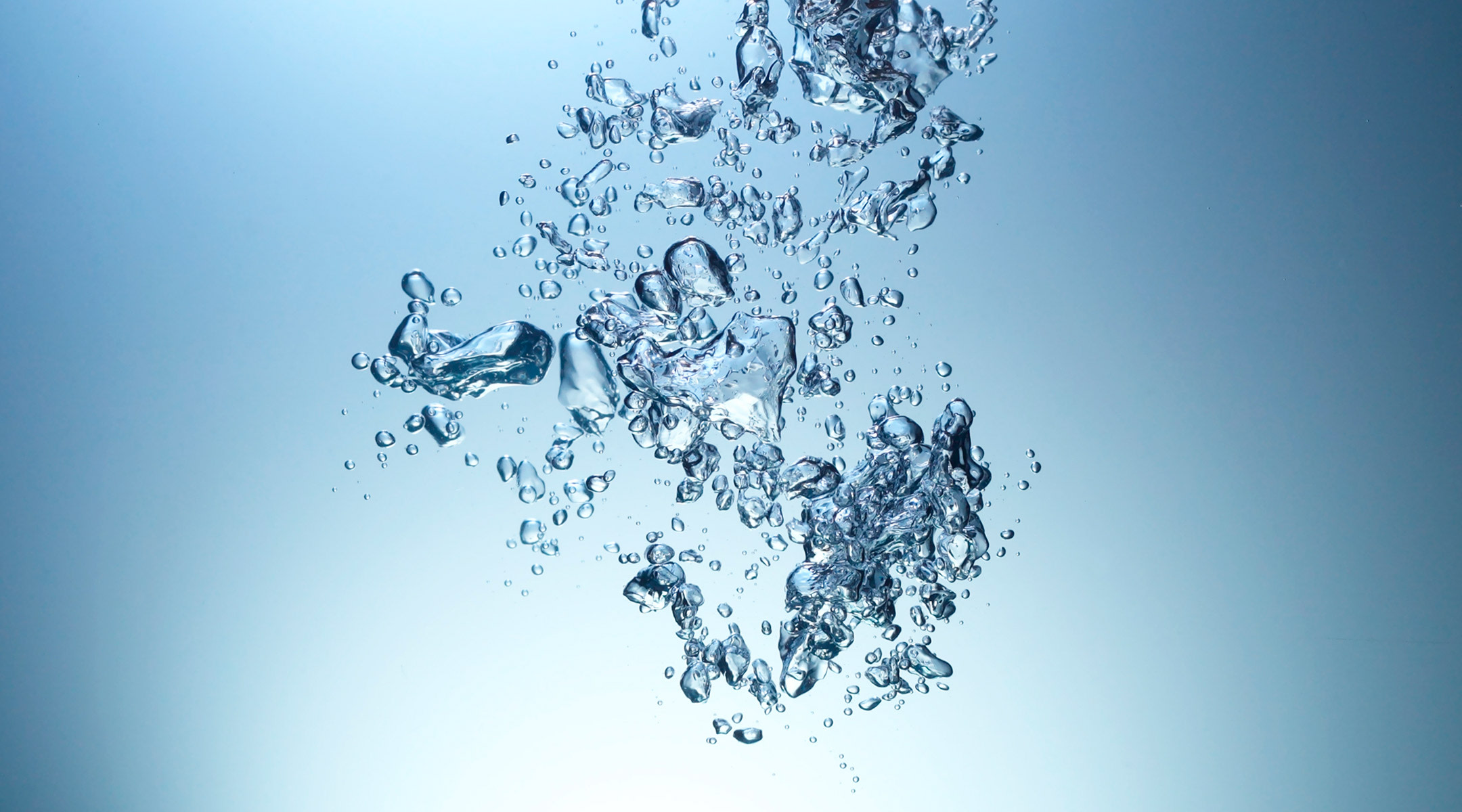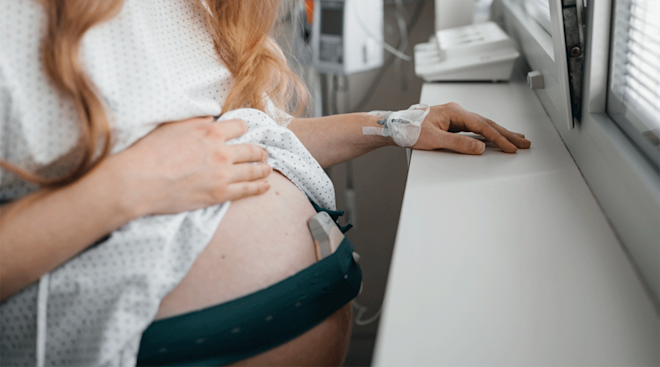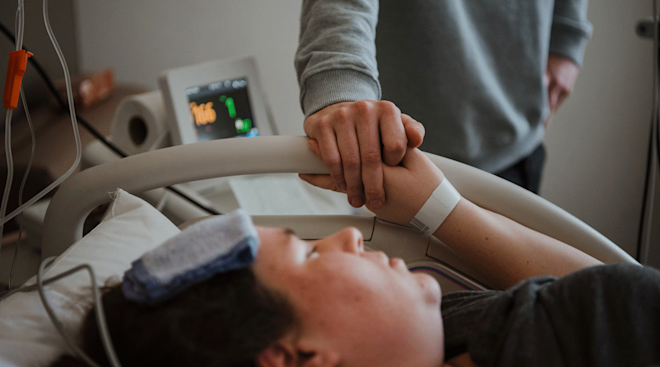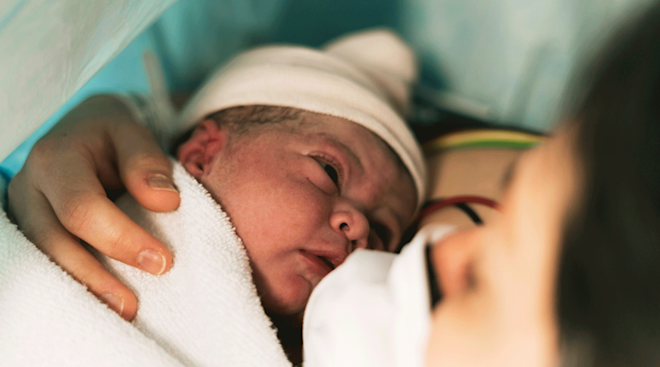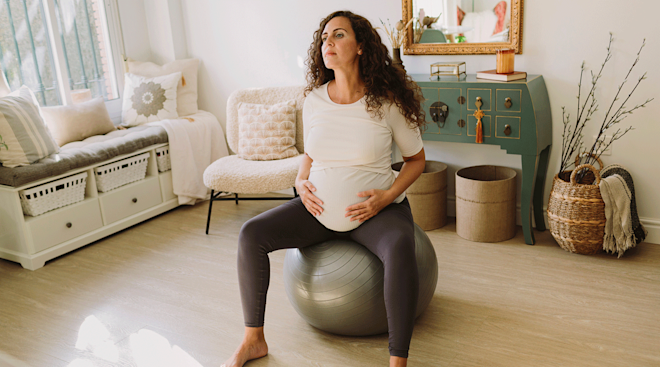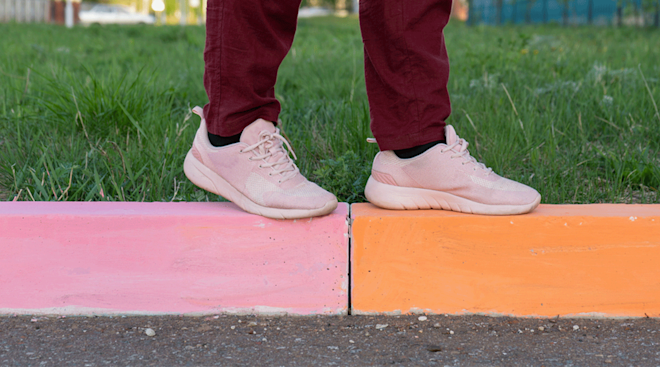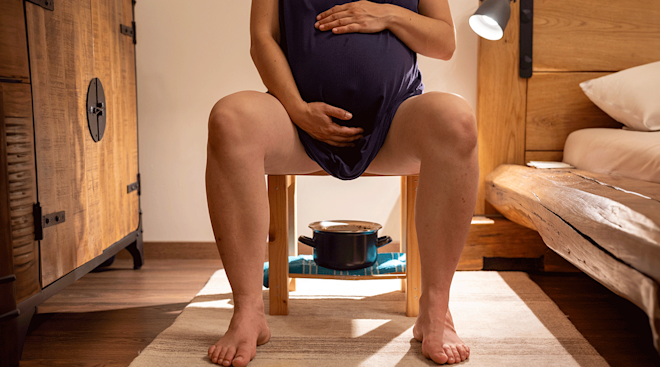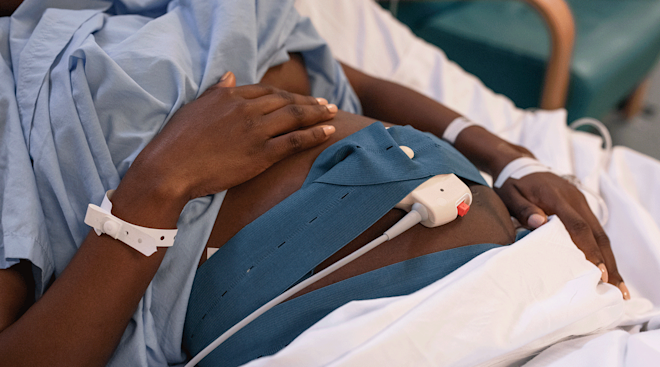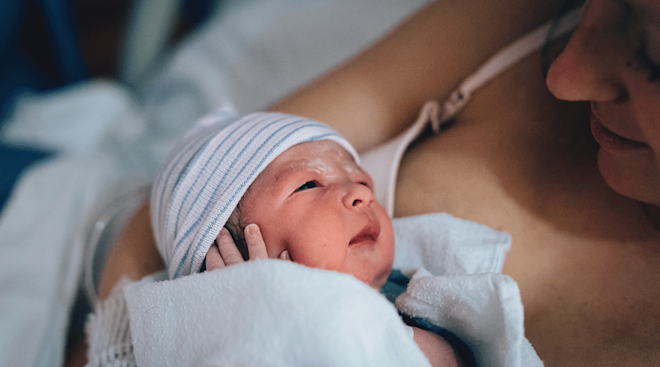What to Know About Your Water Breaking During Pregnancy
If your mattress and car seats are lined with garbage bags and you never leave the house without an extra pair of pants, we’re going to safely assume you’re preparing for that big moment when your water breaks at the end of pregnancy. But if you’re concerned about your water breaking in a sudden gush or uncontrollable flow, you’ve probably been watching too many movies! Although that’s often how it’s depicted on screen, in reality, it’s pretty unlikely that your labor will kick off with a dramatic whoosh of fluid. In fact, only about 15 percent of women have their membranes rupture at all before labor begins. The other 85 percent may experience their water breaking during labor, delivery or even preterm.
So what do doctors mean, exactly, when they talk about water breaking—and does it hurt when your water breaks? Although it sounds painful, we promise you it’s not. During pregnancy, baby is surrounded by a fluid-filled amniotic sac, which is made up of a pair of membranes. The phrase “water breaking” is simply a commonplace way of describing the rupture of those membranes. “It’s essentially the amniotic sac releasing amniotic fluid through a tear,” explains Kaylie Groenhout, childbirth educator and cofounder of Doulas of Northern Virginia. “Membranes can rupture spontaneously at any point: before labor begins; during early labor, active labor, transition, pushing; or not at all.”
Your water breaks as a result of a series of events involving enzymes in the membranes that are triggered by the body, says Sherry Ross, MD, an ob-gyn and women’s health expert at Providence Saint John’s Health Center in Santa Monica and author of She-ology: The Definitive Guide to Women’s Intimate Health. Period. As this chain of events occurs, it causes the membranes to become weak and eventually rupture. In normal pregnancies, women feel their water breaking at or near the end of the third trimester, when baby is fully developed and ready to be born.
Do you have contractions before your water breaks?
Women are often in labor before their water breaks—in fact, the strong contractions during active labor can cause the rupture. But women can also experience their water breaking spontaneously without having a contraction, Groenhout says. This is known as a premature rupture of membranes (PROM). If you’re wondering “how long after your water breaks do contractions start?” there’s no absolute answer, but if you’re more than 37 weeks pregnant, your water breaking likely means labor is imminent, Ross says.
In some cases, membranes can rupture before the 37th week of pregnancy, which can be dangerous for baby if her lungs aren’t yet fully developed. According to Ross, some of the factors that can cause preterm premature rupture of membranes (PPROM) include:
- Infection of the amniotic membranes
- Carrying multiples
- Weak cervix
- Vaginal, cervical, bladder or kidney infection (including STDs)
- Vaginal bleeding during pregnancy
- Excessive amount of amniotic fluid (polyhydramnios)
- Smoking during pregnancy
- Lack of proper nourishment
- Excessive exercise
Treatment for PPROM varies depending on how far along mom is in her pregnancy, but according to the Mayo Clinic, it may include delaying delivery, administering antibiotics to prevent infection and injecting steroids to speed baby’s lung maturity (more below).
Remember all those movie scenes of women’s water breaking in a dramatic flood of fluid? Yeah, it doesn’t usually happen like that. So what does it feel like when your water breaks? The answer depends on whether you’re in labor when it happens, whether you’ve had an epidural and how much fluid is released. Here are several different ways you may experience your water breaking and what each may feel like, according to Groenhout.
• Spontaneous gush. You’ll feel a sudden release of warm fluid, similar to what emptying a full bladder might feel like. Some women report a brief moment of increased pressure in their abdomen as one of the signs your water will break soon. Hearing or feeling a quick, painless but distinct pop is another sign of your water breaking.
• Spontaneous trickle. Other times, your water can break slowly in a trickle of amniotic fluid. Often mistaken for a simple urine leak (totally understandable in late pregnancy!), a small amount is released a little at a time. If you’re unsure whether your water is breaking or you’re just peeing, don’t hesitate to call your doctor; a simple test in the office can confirm whether you’re dealing with a slow leak.
• During active/transitional labor. “Oftentimes, water breaks during active or transitional labor because the intensity of the contractions has increased,” Groenhout says. “Labor often intensifies after your water breaks, since there isn’t a buffer between your uterus and the baby.” The act of your water breaking doesn’t hurt (and if you’ve had an epidural, you likely won’t feel it at all, unless the water reaches up your back), but expect those contractions to ramp up almost immediately.
• Artificial rupture of membranes. If you’re in true labor but things are stalling a bit, your doctor may insert a long plastic rod with a tiny hook on the end and break your water manually. It sounds terrible, but it isn’t painful at all (as if you’d even notice at this point!). Be prepared, though, because you may experience a dramatic increase in contractions after having this procedure.
How much fluid comes out when your water breaks?
Some women experience a gush of fluid when their water breaks, while others have only a small trickle. The difference has to do with baby’s position in the uterus, Ross says. “If you’re closer to your due date, baby’s head might be lower in the pelvis and act like a dam. When baby’s head puts pressure against the cervix, the fluid can’t get through as much.” If baby isn’t engaged in your pelvis when your membranes rupture, you may likely experience a larger volume of fluid all at once. Regardless of whether you have a gush or a trickle, your body knows the membranes have ruptured, Ross says, and the release of prostaglandin, a natural chemical, will eventually cause your body to start contracting on its own.
What does it look and smell like when your water breaks?
One question surely on the minds of many soon-to-be moms is, “Can your water break without you knowing?” If it’s a slow leak, it’s possible to mistake it for other things, like urine. And since things can get downright tropical down there by the end of pregnancy, it can definitely be difficult to figure out what’s going on. Which is why it’s helpful to know what your water breaking may look and, yes, even smell like.
• Color. In most cases, amniotic fluid is mostly clear and colorless. A tinge of cloudiness is normal, since the fluid probably contains some vernix (that thick, waxy coating baby is born with). But beware of a green, yellow or brownish tint—that could indicate an infection or that baby has passed meconium (aka fecal matter), Groenhout says. If your fluid has any of these colors or if the fluid contains blood—a sign of a serious situation called placental abruption, in which the placenta tears away from the uterine wall—contact your doctor immediately. Note that this blood is different from the bloody show, which is completely normal and often shows up as a glob of blood-tinged mucus.
• Smell. Amniotic fluid is usually odorless. According to Groenhout, it may have a slightly sweet or salty smell as well but shouldn’t smell foul or fishy—both are indicators of a possible infection. Unfortunately, it’s difficult for inexperienced noses to tell the difference between amniotic fluid, urine, normal vaginal discharge and even sweat that accumulates down there toward the end of pregnancy. So, it’s probably best not to rely on a sniff test alone and instead consult your doctor.
There’s a simple answer to this complicated question: There’s no way to know. The end of every pregnancy is just as unique as the pregnancy itself. That said, there are a couple of factors that may play a role in determining when baby will arrive.
• Whether you’re having contractions. If you’re having contractions and your water breaks, congrats! You’ll probably be meeting baby very soon. (Hopefully you’ve arrived at the place you’ve planned to give birth.) But if you feel your water breaking and you’re not yet having contractions, you’ll need to contact your doctor to see how long she’ll let you go before inducing labor. “Some doctors are comfortable waiting four to six hours, others eight to 12 hours, and some are not comfortable waiting at all before recommending some sort of labor augmentation,” Groenhout says. Once your water breaks, the clock starts ticking, since the risk of infection increases dramatically. “The amniotic sac works as a protective barrier against bacteria and infection and it could become compromised,” she adds.
• Baby’s gestational age. If you’re full term when your water breaks, there’s a greater likelihood that your body will know exactly how to kick this show into gear. But if you feel your water breaking at 36 weeks or less, your doctor will likely do everything possible to keep the pregnancy going as long as possible if there are no signs of infection, Ross says. You’ll be admitted to the hospital and put on complete bed rest. There, doctors will give you an injection of steroids to mature baby’s underdeveloped lungs as quickly as possible before birth.
Updated December 2017
Please note: The Bump and the materials and information it contains are not intended to, and do not constitute, medical or other health advice or diagnosis and should not be used as such. You should always consult with a qualified physician or health professional about your specific circumstances.
Plus, more from The Bump:
Navigate forward to interact with the calendar and select a date. Press the question mark key to get the keyboard shortcuts for changing dates.
































